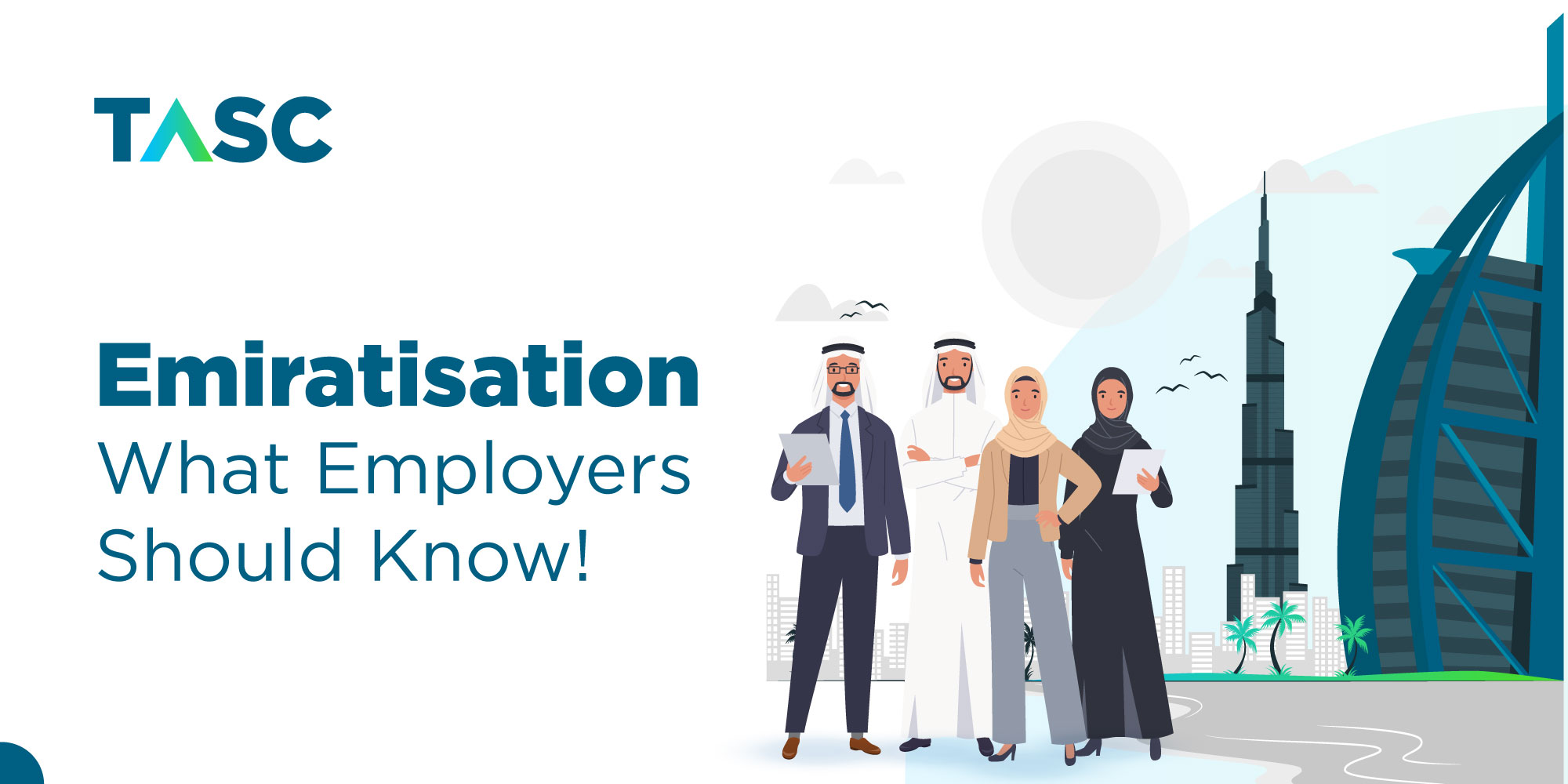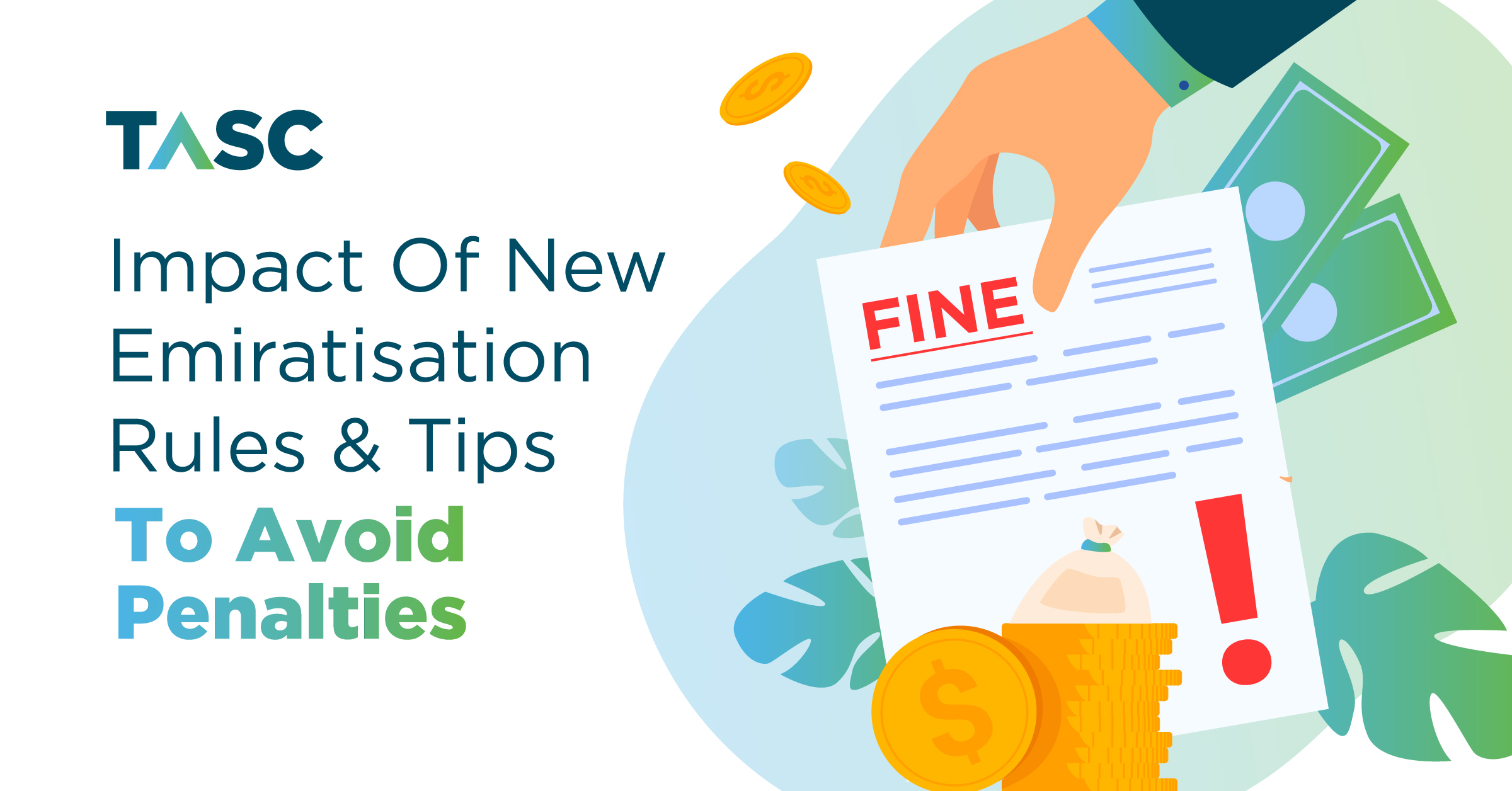What Employers Need to Know about the Emiratisation
One of the primary objectives of the UAE government has been to increase the number of Emiratis in the private sector. Several initiatives and laws were passed in the last couple of years supporting the UAE's localisation of the workforce. In adherence to that goal, the government has planned to introduce a new set of laws – as part of the Emiratisation policy – that obligate the recruitment and retention of UAE nationals at a specific rate every year.
Private sector employers must learn about the implications of the new rules and guidelines, mainly because they are expected to immensely impact the organisational and recruitment policies of companies registered within the Ministry of Human Resources and Emiratisation (MOHRE) in the UAE.
Please note that these laws won’t apply to businesses operating in the free zones.
Emiratisation – An Overview
Emiratisation is a government initiative mandating the inclusion of UAE nationals in the private job market, specifically the private sector. The goal is to increase support for Emiratis in the workforce, ultimately facilitating economic growth in the UAE.
According to the Council of Ministers, a quota system will be imposed on employers that require them to recruit and retain a specific number of UAE nationals in their company. The number is determined using a specific percentage of staff strength. Let’s take a close look at the current threshold of the Emiratisation policy –
- 2% - Commercial Entities (with more than 50 employees)
- 4% - Banks
- 5% - Insurance companies (with more than 50 employees)
Understanding the New Rules
Employers who do not meet the requirements of the new Emiratisation policy will have to pay a heavy fine every month for every UAE national who hasn’t been hired under the necessitated threshold from the beginning of January 2023. The NAFIS programme, a UAE federal initiative, approved the new guidelines to accelerate the Emirati workforce's competitive spirit in the UAE.
The UAE Cabinet decided to increase the quota to 2% annually (in companies employing 50 or more staff in high-skilled roles) while aiming to go up to 10% by the year 2026.
What Businesses Need to Do?
Because the new rules will be implemented from the beginning of January 2023, private companies functioning in the UAE region must closely review their staff data and make sure all the figures are up-to-date, specifically the number of Emiratis employed in their company and whether it meets the new thresholds. It is also necessary to closely determine the ‘Tier’ category your business may fall into and to what extent you plan to increase your hiring rate of UAE nationals.
If your company appears to fall short in meeting the required thresholds, it is paramount to act immediately by hiring a recruitment firm to avoid potential fines and penalties at the time when the new Emiratisation policy will take effect in 2023. At TASC Outsourcing, we offer recruiting solutions to private companies to hire Emirati nationals in the UAE.
Bottomline
It’s a need of the hour for businesses to align their efforts to diversify the workforce closely. Their hiring and retention strategies must adapt and comply with the new Emiratisation rules. With less than six months left, companies do not have time to stall and must act immediately to avoid significant financial penalties.





